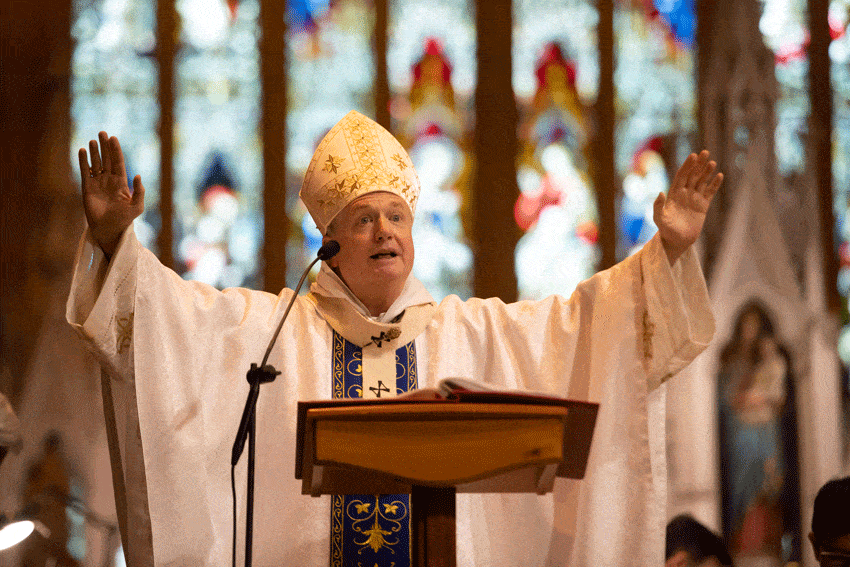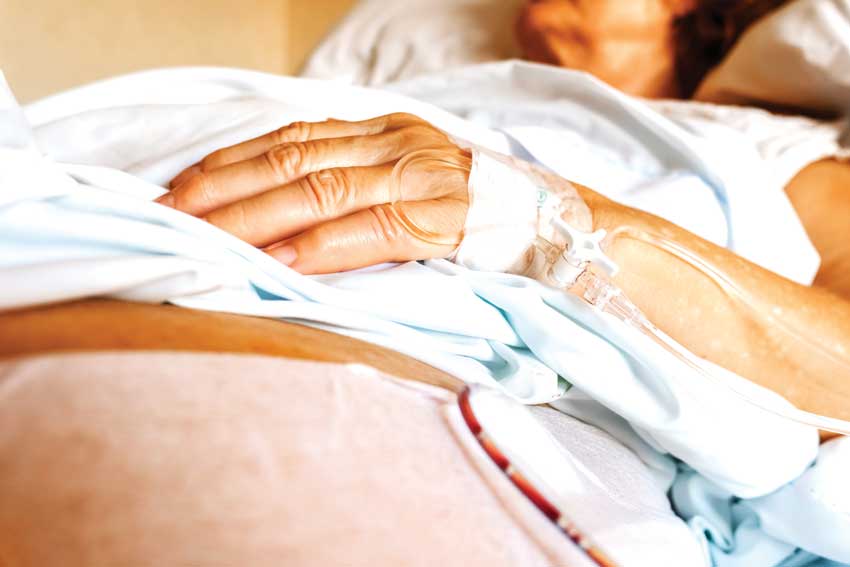
As the oldest and largest health and aged care provider in the world, the Catholic Church has long operated to uphold the dignity of the elderly and the dying and compassionately to relieve their suffering, never entertaining killing them or collaborating in bringing about their early death.
So our first reason for opposing these laws is a practical one: this is not what we are set up to do, not in accord with our traditions and practices, diametrically opposed to the spirit that inspires the care Catholic institutions offer.
If Australia tolerates non-government providers of health and aged care like us, we have to be given the space to be different in some ways.
Second, the sanctity of life principle and consequent prohibition on killing has been a cornerstone of our law and medical practice and this has served us very well for a long time now. We should not abandon it lightly.
“We should be very wary of overturning all that and creating two classes of citizens: those whose lives are inviolable and so protected by law … and those whose lives can be taken or whose suicides can be encouraged or enabled.”
The view that human beings are special, their dignity inalienable and their lives inviolable, is no monopoly of Christians or even of religious believers: it is common to the legal systems of most nations, international human rights instruments, the pre-Christian Hippocratic Oath and the modern ethics of the World Medical Association and most local medical associations.
We should be very wary of overturning all that and creating two classes of citizens: those whose lives are inviolable and so protected by law, suicide prevention measures and societal respect, and those whose lives can be taken or whose suicides can be encouraged or enabled.
The sanctity of life principle has been a powerful driver in our response to the coronavirus pandemic. We have accepted various restrictions on our daily lives principally so as to keep the elderly, frail and dying safe (the young and healthy, we know, are not in much danger).
It is a good instinct. We have accepted some limitations on our autonomy in order to protect the most vulnerable.

The sanctity of life principle also informed our horror at some of the revelations of the Aged Care Royal Commission. We think the frail elderly deserve better.
Whether we neglect them to death or offer them the wherewithal to ‘volunteer’ for an early death, we are saying their lives are not the equal of ours, that they (or we) would be better off if they were dead.
Thirdly, physician-assisted suicide laws inevitably suffer from “bracket creep”.
Already in Australia’s short experience of this we have found the law applied to far more people than was first expected and there has already been a concerted campaign to relax the supposed “safeguards” that were put in place to sell those laws.
“There is nothing that can be done to sugarcoat state-sanctioned killing of certain citizens: it is a disastrous move. So is assisting in suicides.”
Looking overseas we see voluntary assisted suicide laws in some countries, originally applicable on a voluntary basis for dying adults only, gradually extended to those whose condition is not terminal, or not even medical, and to children and the unconscious. We should not go there!
There is nothing that can be done to sugarcoat state-sanctioned killing of certain citizens: it is a disastrous move. So is assisting in suicides. But there can be better or worse versions of such a bad law.
It would obviously be better, for example, if there were clear guarantees that no institution, no professional, no sick person and no family member would be required to participate in or refer for euthanasia, and that none would be disadvantaged for having exercised this right.
While I am pessimistic about other provisions to ensure voluntariness or to minimise the pool of those eligible – pessimistic because I don’t believe such safeguards will long hold once euthanasia is permitted – I respect those politicians who try to make bad laws not-so-bad.
The above statement was issued by Archbishop Anthony Fisher OP this week following news that the NSW Parliament may soon be considering the legalisation of euthanasia
Related Articles
